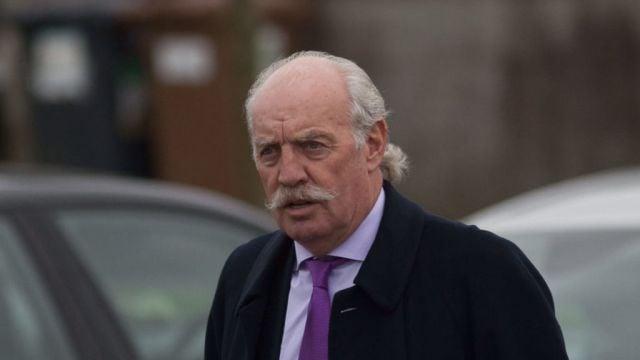Dermot Desmond says economist Prof Joseph Stiglitz should not be allowed to give evidence on what constitutes the public interest as an expert witness in the businessman’s High Court defamation and breach of privacy action, a judge has been told.
Mr Desmond says he was defamed when he was linked to companies which dealt with the law firm whose data was leaked during the 2016 Panama Papers controversy.
He claims the evidence of the Nobel laureate economist would be irrelevant and inadmissible and should not be permitted. He also says Prof Stiglitz could not be regarded as an impartial witness.
The Irish Times, which denies the defamatory meanings ascribed by Mr Desmond to the article, says Prof Stiglitz's evidence is necessary for it to defend the case.
The leak in April 2016 of more than 11.5 million documents from the Panamanian law firm Mossack Fonseca detailed financial information from offshore accounts and potential tax evasion by the rich and powerful, including politicians and sports stars.
The Irish Times was among a number of newspapers granted access to the leak and published a number of stories related to it in April 2016. In one, it made reference to a number of Irish people, including Mr Desmond.
Mr Desmond says that by publishing this article among a collection of articles about the Panama Papers, The Irish Times was including him among fraudsters, drug dealers and criminals, and that is what makes it defamatory.
He says the article meant, among other things, he was involved in rogue or suspicious financial transactions, the purpose of which was to hide assets.
Public interest
The Irish Times pleads, among other things, fair and reasonable publication on a matter of public interest.
Jim O'Callaghan SC, for Mr Desmond, told the court there was no suggestion that Mr Desmond did anything illegal.
Counsel said that when they learnt the defendant would be putting forward Prof Stiglitz as an expert witness, his side first sought and was given a copy of the report on which he would be basing his evidence.
They now seek an order precluding Prof Stiglitz from giving evidence as an expert witness for reasons including that, under court rules, a defendant is required to plead in their written defence that they will be relying on such evidence.
Having obtained the Stiglitz report, his side believes it is now even more necessary to seek an order that his evidence is inadmissible.
It was up to the court, or in this case a jury, to objectively decide whether it was in the public interest, but one cannot call an expert to give evidence about what is in the public interest, he said.
If this was so, then the Desmond side would have to get into the realm of having to call evidence about why it is not in the public interest, he said.
He said Prof Stiglitz had resigned from a commission set up by the Panamanian government in 2016 to investigate their financial system’s lack of transparency after that government decided the commission's report would not be published.
This meant Prof Stiglitz was not impartial and "is embedded in the Panama Papers issue", counsel claimed.
Impartiality
Michael O'Higgins SC, for The Irish Times, said his client's primary position was there was no defamation and no reasonable reader could extract a defamatory meaning from the article.
It was their case that, in defending an article, a newspaper's journalist is entitled to give evidence laying out the premises on which an article came into being. The paper was entitled to call witnesses to supplement this evidence, he said.
Prof Stiglitz had said he was aware of his duties as an expert witness to be independent, regardless of who was employing him to attend court.
Here, Mr Desmond was claiming an alleged lack of impartiality and credibility on the part of Prof Stiglitz, counsel said.
If he wished to do that, then the professor should be put in the witness box and cross-examined, and a court can decide the issue of impartiality, he said.
The claim he was compromised by "taking the shilling" to go on the Panamanian Commission did not stand up to scrutiny because he had resigned from it due to its lack of transparency, he said.
Counsel also said a number of other well-known individuals and companies were mentioned in other articles about the Panama Papers, and no other entity had "taken legal umbrage" over it.
Mr Justice Alexander Owens reserved his judgment.







